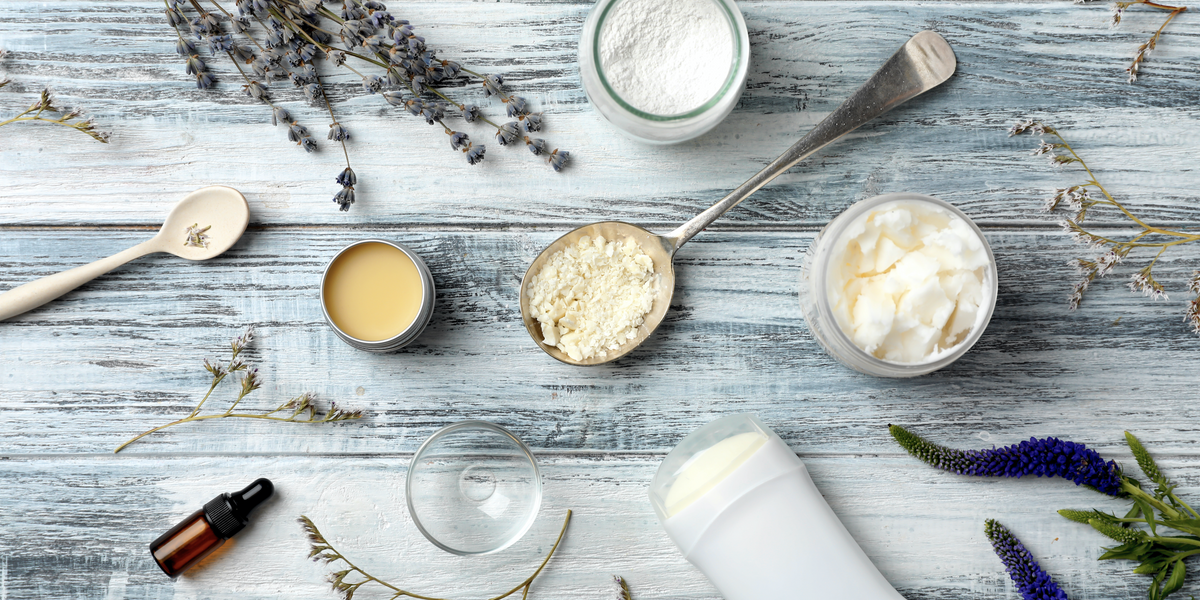Should Dancers Be Wearing Natural Deodorant?
Stroll the aisles of a drugstore, and you’ll notice lots of newer deodorants that claim to be “all-natural” or “aluminum-free.” Compared to the chalky sports deodorants of the past, these trendy alternatives seem like a health-conscious option. But is natural deodorant worth the hype—and potential stink in the studio?
The Science of Sweat
Sweat is your body’s natural way of cooling down, and technically it’s an odorless fluid, explains Dr. Rajani Katta, a dermatologist in Houston. Once sweat is released, it combines with bacteria that breaks it down on your skin. “That process of bacterial sweat breakdown is what produces odor,” Katta says.
Antiperspirant works by forming a “plug” at the opening of the sweat glands, which stops sweat from coming onto the surface of the skin, says Dr. Patricia Farris, a dermatologist in Louisiana. Deodorants, on the other hand, won’t stop sweat production, but they will help you manage odor. A lot of products combine both antiperspirant and deodorant to keep your pits dry and smelling fresh at the same time.
Why Some Dancers Switch
Aluminum salts are the ingredient that gives antiperspirant its sweat-defying powers, but they’re somewhat controversial. There used to be concern that using any aluminum-based products could lead to Alzheimer’s disease. Others worried that repeatedly applying aluminum antiperspirant to your underarms could increase your breast cancer risk.
However, Farris says that several large studies have completely debunked these alarming myths. “What I tell patients is that there really isn’t any medical reason not to use aluminum-based antiperspirants,” she says.
That said, as many people switch to cleaner, more eco-friendly or even vegan skin-care products, they’re curious about “natural” deodorants. But know that just because a product has the word “natural” on the label, it doesn’t necessarily mean it’s safer. The Food and Drug Administration doesn’t have an established regulatory definition, which means that anything can be labeled “natural.” Also keep in mind that even so-called “natural” ingredients like essential oils could cause allergic reactions, Katta says. (It’s a good idea to test deodorant on a small patch of skin before you add it to your routine, to make sure it doesn’t irritate your skin.)
If you want to go the natural route, your best bet is to look for ingredients that absorb moisture, such as charcoal, clay and baking soda, Farris says. While you won’t get the same level of dryness as you would from a traditional antiperspirant, those ingredients will keep you slightly more protected than going au naturel.
Expert Picks
“Natural” deodorants to audition, based on Farris’s and Katta’s recommendations of what to look for:
Acure Fragrance Free Deodorant, $8.99
Fragrance in deodorant doesn’t really do anything besides mask your body odor, plus it can irritate sensitive skin, Katta says. This fragrance-free stick deodorant uses cornstarch to soak up sweat.
Schmidt’s Charcoal and Magnesium Deodorant Stick, $9.99
Deodorants made with charcoal naturally draw moisture and dirt away from your skin, says Farris.
Vanicream Deodorant, $9.40
If you have sensitive skin, Katta suggests this no-frills deodorant. It’s fragrance-free and only made with five ingredients.
Pretty Frank Mini Baking Soda Deodorant, $4
This convenient tin of baking soda deodorant is made from spreadable shea butter and coconut oil (plus baking soda and arrowhead powder to absorb sweat), so it’s easy to reapply.
Pacifica Coconut Milk & Essential Oils Underarm Deodorant Wipes, $9
These coconut-scented wipes clear away sweat and stink that build up throughout the day.
Native Deodorant, $12
With scents like cucumber mint and lavender rose, these deodorants smell as good as perfume. Baking soda and tapioca starch add an extra layer of protection.




